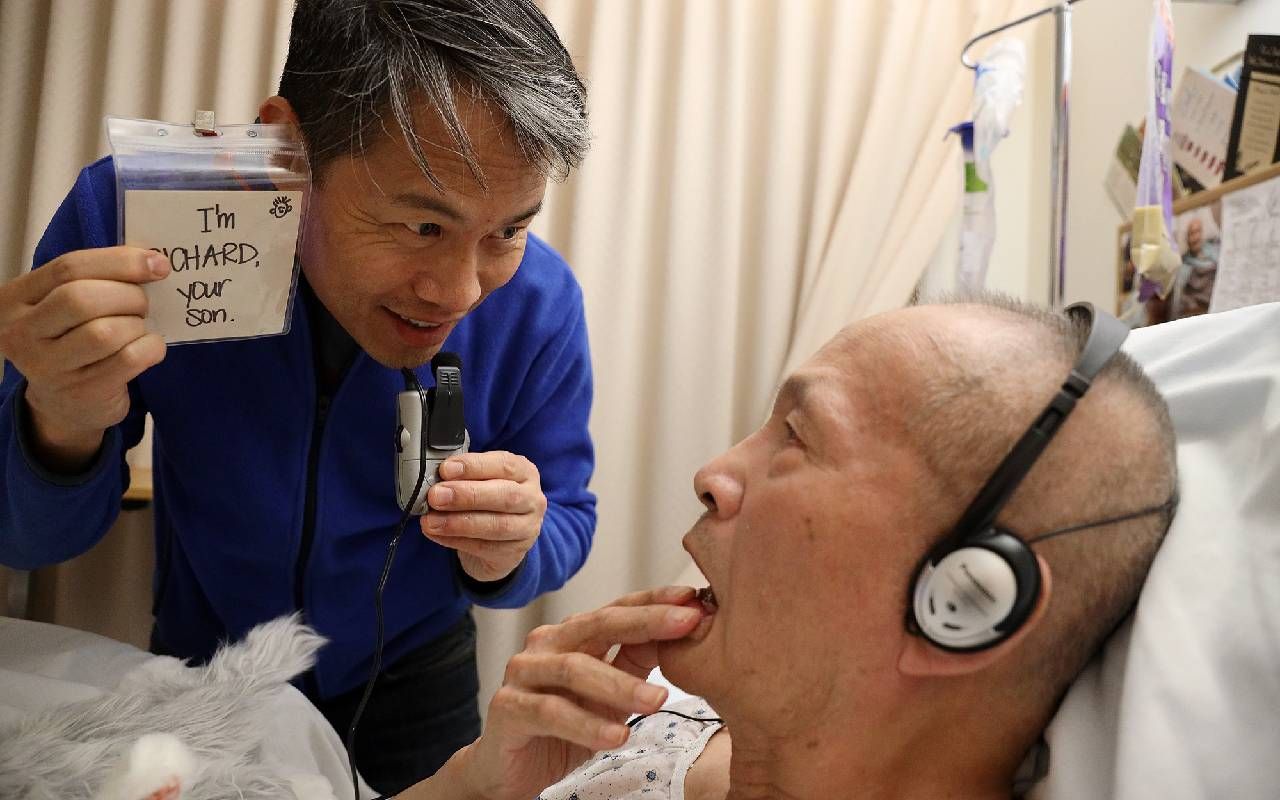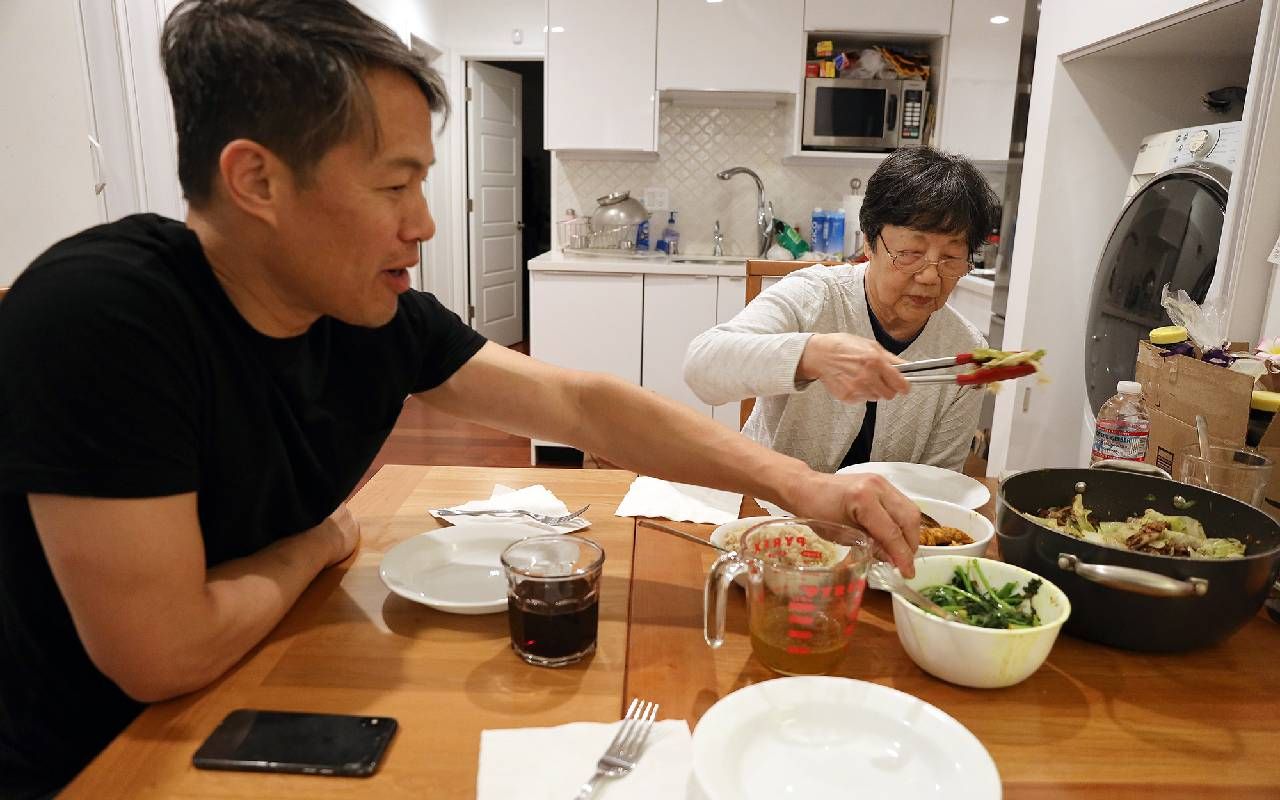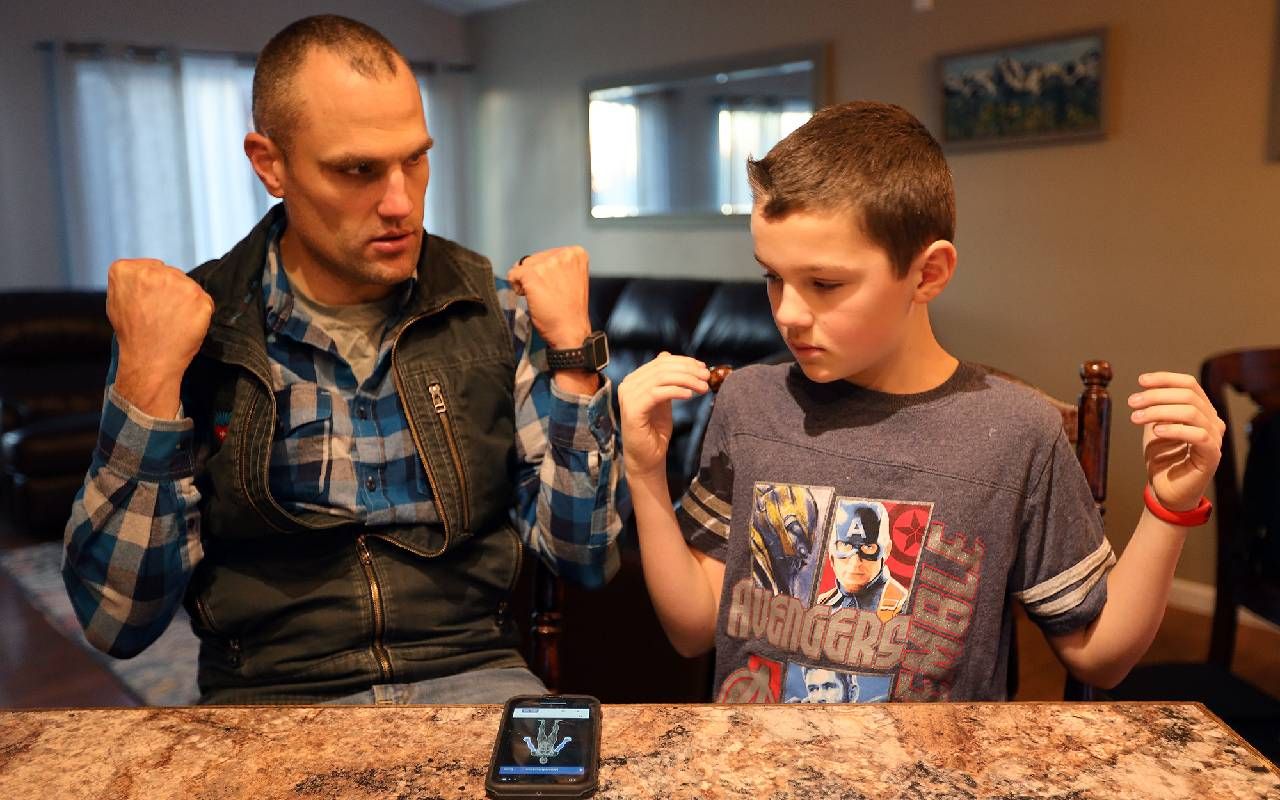Unconditional Caregiving
A new documentary by journalist Richard Lui follows the journeys of three family caregivers, including himself
Journalist Richard Lui's father, Stephen, was diagnosed with Alzheimer's disease nine years ago. Not long after the diagnosis, the New York-based MSNBC/NBC news anchor began commuting cross-country to San Francisco each week to help care for his father, alongside his mother and siblings.
Yet it took him three or four years to self-identify as caregiver, perhaps because caregivers, especially men, work in the shadows of society.

Today, Lui is shining a light on his caregiving journey and on those of two other family caregivers. His 2023 documentary "Unconditional" tells the stories of the three families and through those stories explores a topic affecting 100 million Americans today.
"There's this duality they all go through: "Isn't this the everyday thing I should do? And at the same time, I feel like I'm the only person doing that everyday thing.'"
Lui and his film crew spent seven years—and logged more than 50,000 miles—documenting the three families' stories. Besides his own family, viewers meet those of Kate Hendricks Thomas, a mental health expert with terminal brain cancer, and Luke Bushatz, who developed PTSD while serving in Afghanistan in 2009.
The film was screened at the White House in May (with First Lady Jill Biden in attendance) and is currently streaming on PBS Passport and Prime Video.
To learn more about the film, Next Avenue recently spoke by phone with Lui. This interview has been edited for length and clarity.

Next Avenue: Before "Unconditional," AARP asked to film you taking care of your dad. What was your reaction?
Richard Liu: I was like, 'How boring is that?' Now when I look back, I reacted just like everybody else who begins caregiving. In a way, they're kind of saying, 'Aren't I the only one doing this? And so why would this be a relevant story?'
There's this duality they all go through: 'Isn't this the everyday thing I should do? And at the same time, I feel like I'm the only person doing that everyday thing.'
"Unconditional" explores three very different stories. How do they connect?
On the surface, you're looking at a middle-aged Asian American guy taking care of his dad with Alzheimer's in California and two 30-something or 40-something couples, one a man taking care of a woman in Virginia, one a woman taking care of a man in Alaska. As the interviewer, I was thinking, 'Man, we're so different.' But when we were talking about our caregiving journeys, it was like, 'Oh of course. I get it.'
"Men also need the same support. Perhaps because they don't raise their hands, they're even more isolated."
Two of the three caregivers featured in the film are male. That runs counter to conventional expectations, doesn't it?
The stereotype is that caregivers are women. We have 45% male caregivers, but anybody you ask in the country or in the world would probably say it's about 20%. That fits into the stereotype of the gender dynamic around men and women more widely speaking. And it behooves us to talk about it more, if we're men and raising our hand, because it helps to dispel some of the broader gender role stereotypes.
Men also need the same support. Perhaps because they don't raise their hands, they're even more isolated. The way we talk to each other is pushing men farther back into the shadows. And you don't need isolation during caregiving because of the mental health part of it.
You've said that editing "Unconditional" was like therapy. Why was that?
The two-year edit was an exploration of my own experience, my own thing, as much as it was about my fellow caregivers. It was a way for me to work through a difficult time.
That was especially true when you were editing a scene where Luke Bushatz's wife, Amy, becomes emotional reading a letter from him, right?
Why was she crying? Why was that letter so symbolic? I had to describe in my own words to the editor and producers what I was going through to explain why I knew what she was going through.

In making the film, you intentionally sought to capture the joy that can come in the midst of caregiving challenges. Talk about that.
It's a difficult topic, but on the flip side it's a very inspiring. There's a lot of joy despite the difficulty. There's this other side, that of laughing like I've never laughed.
How has caregiving changed you personally?
I'm the best human I've ever been. That doesn't mean I'm a great human, but in my slow arc it's the best time for me.
And are you better at talking about mental health, which is so tightly linked to caregiving?
I'm not the best at it. But I think I'm better at it than I would have been otherwise had my father not been as expressive and open about his own mental health journey.
You see caregiving bridging America's deep cultural divides. Could you explain?
By stereotype, what's an Asian American MSNBC anchor doing working with the Elizabeth Dole Foundation on military caregiving? I do come from a military family — and both my parents came from military families — but the caregiving is what brought us together.
As we look for stories that are binding in America, caregiving really does take down all of these separations that I think we think are there.
We're all going to arrive, and we're all going to leave. And this is part of arriving and leaving.

